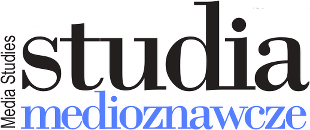Wykorzystanie mediów informacyjnych w dyskusjach politycznych na Facebooku
Paweł Matuszewski
(Zakład Socjologii Polityki w Instytucie Politologii Uniwersytetu Kardynała Stefana Wyszyńskiego w Warszawie/Department of Sociology of Politics, Institute of Political Science, Cardinal Stefan Wyszyński University in Warsaw)
![]() Pełny tekst artykułu
Pełny tekst artykułu
![]() English version of the article
English version of the article
Celem artykułu jest pokazanie, w jaki sposób użytkownicy Facebooka posługują się mediami informacyjnymi w dyskusjach internetowych. Według głównej hipotezy badawczej członkowie fanpage’y politycznych preferują źródła ideologiczne zbieżne z ugrupowaniem, z którym sympatyzują, natomiast dyskryminują pozostałe. Dowody w postaci ok. 33 tys. odsyłaczy do mediów informacyjnych zebrane od września 2015 do lutego 2017 r. sugerują jednak, że na fanpage’ach politycznych użytkownicy powołują się na zróżnicowane źródła.
SŁOWA KLUCZOWE
komora pogłosowa, bańka filtrująca, Facebook, media informacyjne, strony fanowskie, polaryzacja przekonań
BIBLIOGRAFIA
- Allcott H., Gentzkow M., Social media and fake news in the 2016 election, Working Paper No. 23089, National Bureau of Economic Research 2017.
- Barberá P., Birds of the same feather tweet together: bayesian ideal point estimation using Twitter Data, „Political Analysis” 2015, nr 1 (23).
- Barberá P., Jost J.T., Nagler J., Tucker J.A., Bonneau R., Tweeting from left to right is online political communication more than an echo chamber?, „Psychological Science” 2015.
- The SAGE handbook of social media, red. J. Burgess, A.E. Marwick, T. Poell, Thousand Oaks 2017.
- Canon L., Self-confidence and selective exposure to information [w:] Conflict, decision, and dissonance, red. L. Festinger, Stanford 1964, s. 83–96.
- Dandekar P., Goel A., Lee D.T., Biased assimilation, homophily, and the dynamics of polarization, „Proceedings of the National Academy of Sciences” 2013, nr 15 (110).
- The SAGE handbook of online research methods, red. N.G. Fielding, R.M. Lee, G. Blank, Los Angeles 2016.
- Gantz W., Trenholm S., Why people pass on news: motivations for diffusion, „Journalism Quarterly” 1979, nr 2 (56).
- Gentzkow M., Shapiro J.M., Ideological segregation online and offline, NBER Working Papers No. 15916, National Bureau of Economic Research 2010.
- Knobloch-Westerwick S., Choice and preference in media use: advances in selective exposure theory and research, New York–London 2015.
- Messing S., Westwood S.J., Selective exposure in the age of social media: endorsements trump partisan source affiliation when selecting news online, „Communication Research” 2014, nr 8 (41).
- Sunstein C.R., #Republic: Divided democracy in the age of social media, Princeton 2017.
- Swann W.B., Giuliano T., Confirmatory search strategies in social interaction: how, when, why, and with what consequences, „Journal of Social and Clinical Psychology” 1987, nr 4 (5).
- Vicario M.D. i in. The spreading of misinformation online, „Proceedings of the National Academy of Sciences”, 2016, nr 3 (113).

